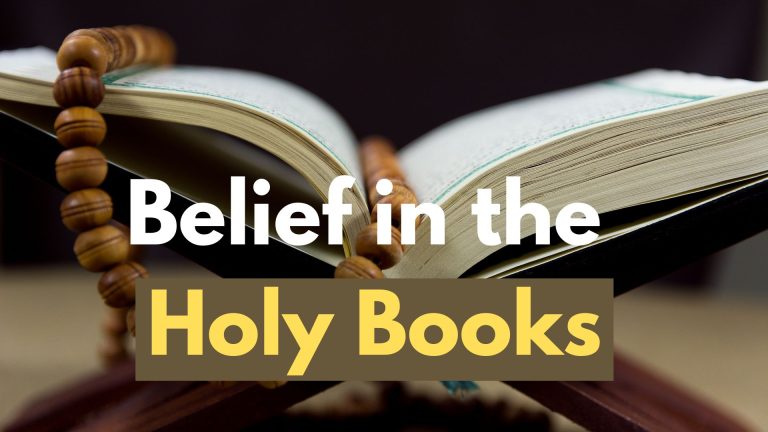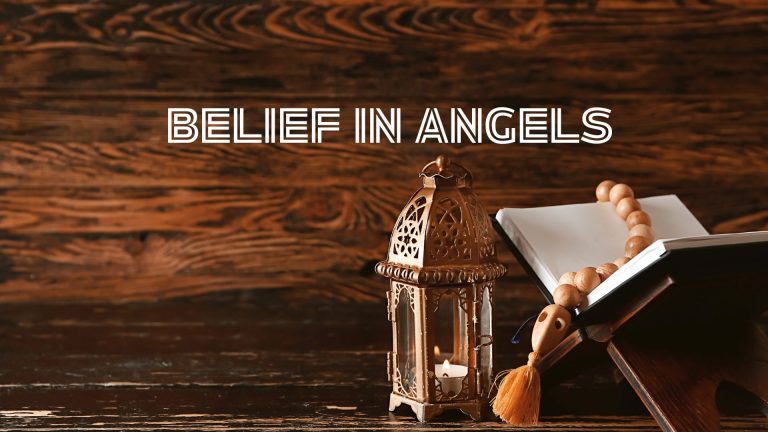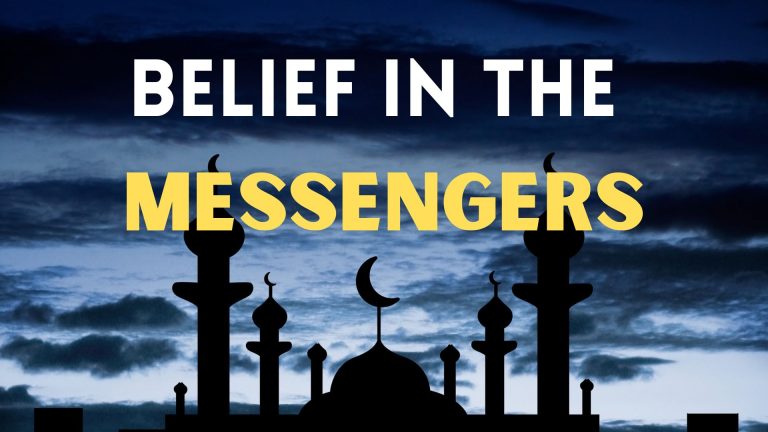Belief in Life After Death
In Islam, “Akhirah” denotes the belief in life after death. It is firmly believed that Allah holds the power to determine when an individual’s life ends, and upon death, the deceased awaits judgment in their graves until the Day of Judgment, also known as Yawm al-din.
On this day, Allah, the Almighty, evaluates every individual based on their actions during their earthly existence. This belief is rooted in the concept of the resurrection of the body. According to Islamic tradition, death marks the separation of the soul from the body, ushering in the commencement of the afterlife.
Various discussions within Islamic jurisprudence, represented by the three traditional schools of thought, offer different interpretations regarding the process. However, the primary sources guiding Muslims are the Quran and Islamic narratives.
The Quran, for instance, asserts, “Nor can a soul die except by Allah’s leave. The term being fixed as by writing.” (Quran 3:145)
Understanding Belief in Life After Death in Islam
Life after death holds significant importance in Islam, shaping beliefs and practices concerning the journey of the soul beyond earthly existence. Exploring Islamic teachings on this topic offers profound insights into the afterlife’s nature and significance in the Muslim faith.

Departure and Accountability
Upon death, Muslims believe that the soul is escorted by the angel of death, Azrael, marking the beginning of its journey towards the afterlife. Subsequently, the deceased faces questions from the angels Munkar and Nakir in the grave, assessing their conduct and faith during earthly life.
Insights from Hadith
Islamic tradition emphasizes that three deeds persist beyond death:
- Ongoing acts of charity
- Contributions to knowledge
- The prayers of a dutiful child on behalf of their deceased parent.
These deeds reflect individuals’ enduring impact even after departing from this world. Individuals who have performed righteous deeds are promised entry into Jannah, or Paradise, in the afterlife. Conversely, those who have committed wrongful deeds are destined for Jahannam, or Hell, where they endure physical and spiritual torment.
However, Muslims hold a steadfast belief in the mercy and forgiveness of Allah. It is understood that not all transgressions are met with punishment, as repentance and the performance of good deeds offer avenues for redemption.
The Quran reassures believers, stating,
“Of the good that they do, nothing will be rejected of them; for Allah knows well those that do right. Those who reject faith, neither their possessions nor their numerous progeny will avail them aught against Allah; they will be companions of the fire, dwelling therein forever.” (Quran 3:115-116)
Quranic Guidance on Mourning
The Quran offers guidance on mourning rituals, particularly for widows left behind after a spouse’s death. Widows are instructed to observe a period of waiting before considering remarriage, emphasizing societal norms and compassion during times of loss.
Exploring the Concept of Rebirth
Certainly, mainstream Islamic doctrine does not endorse the concept of rebirth. However, certain Quranic verses and Hadiths allude to the cyclical nature of creation. They suggest the possibility of a recurring pattern in Allah’s divine plan.

The Purpose of Human Existence
In Islam, the ultimate purpose of human life is to worship Allah and adhere to His guidance. Earthly existence serves as a test, with individuals judged based on their faith, actions, and adherence to Islamic principles. The afterlife awaits as a culmination of one’s deeds and faith.
Islamic Wisdom on Life and Death
Islamic scriptures offer profound insights into the nature of life and death, emphasizing Allah’s sovereignty over existence. Deeds, relationships, and possessions accompany individuals to the grave, underscoring the transient nature of worldly attachments.
Stages of Life After Death in Islam
As we all has a belief in life after death, in Islamic belief, the soul’s journey after death encompasses several stages. Each stage is imbued with profound significance and implications for the individual’s eternal destiny.
1. Barzakh, The Transitional State of Waiting
Upon death, the soul enters a state of Barzakh, signifying a transitional phase between earthly life and the afterlife. This period is a time of anticipation and preparation for the impending judgment.
2. Blowing of the Trumpet
The trumpet blowing by the angel Hazrat Israfel heralds the onset of the apocalypse. It awakens the dead from their slumber and summons them to the gathering place for judgment.
3. Apocalypse or Qiyama
Qiyama, or the Day of Resurrection, signifies the dramatic rise of the deceased from their graves. It symbolizes the commencement of the divine reckoning.
4. Resurrection After Death
According to Islamic teachings, resurrection encompasses both bodily and spiritual revival. Individuals are raised from their earthly resting places to stand before Allah for judgment.
5. Gathering Place
At the gathering, all resurrected souls converge, awaiting divine judgment. They anticipate the presentation of their Book of Deeds, which meticulously records their lifetime actions.
6. Receiving the Book of Deeds
Upon receiving the Book of Deeds, individuals contemplate their past actions. The meticulous records serve as the basis for their ultimate judgment before Allah.

7. Reckoning
Each soul meticulously examines its deeds and intentions, ensuring absolute accountability and justice as Allah judges their actions.
8. Scale or Mizan
The Scale of Mizan measures the balance of deeds, determining the weight of good versus evil. Salvation or punishment hinges on the outcome of this divine weighing process.
9. River and Pool of Kawthar
The Pool of Kawthar, nourished by the River of Paradise, symbolizes spiritual abundance and blessings. Entrusting to Prophet Muhammad signifies his exalted status and role in the afterlife.
10. Sirat, Crossing the Bridge of Accountability
Every soul must traverse the Sirat, a bridge stretching over the depths of hell. The speed and ease of crossing depend on one’s deeds and faith during earthly life.
11. Intercession, Seeking Divine Forgiveness and Mercy
In this stage, individuals may seek intercession from righteous scholars and prophets. They beseech Allah for forgiveness and mercy, while others ascend to higher spiritual ranks.
12. Purgatory
Araf serves as the world between paradise and hell, where souls await Allah’s decision regarding their eternal fate, reflecting on their deeds and seeking divine mercy.
13. Hell, Punishment for Transgressors
Sinful souls face the torment of Jahannam, enduring the consequences of their transgressions as they undergo divine punishment for their deeds.
14. Paradise: Eternal Reward for the Righteous
Those adorned with righteous deeds are granted entry into Jannah. They experience eternal bliss and tranquility, basking in the divine rewards reserved for the righteous.
Comprehending these intricate stages provides profound insight into the Islamic conception of life after death. It underscores themes of accountability, justice, mercy, and the ultimate reward for righteousness in the hereafter.
FAQs
What happens to the soul after death in Islam?
According to Islamic belief, the soul is taken by the angel of death, Azrael. It undergoes questioning in the grave by angels Munkar and Nakir regarding the individual’s conduct in life.
Do deeds continue after death in Islam?
According to Hadith, three deeds persist beyond death: ongoing acts of charity and contributions to knowledge. Additionally, the prayers of a dutiful child on behalf of their deceased parent endure.
Is mourning regulated in Islam?
The Quran guides mourning rituals, particularly for widows, emphasizing compassion and societal norms during times of loss.
Does Islam support the concept of rebirth?
While mainstream Islamic doctrine does not endorse rebirth, certain Quranic verses and Hadiths allude to a cyclical nature of creation. They suggest a recurring pattern in Allah’s divine plan.
What is the purpose of human existence in Islam?
The ultimate purpose of human life in Islam is to worship Allah and adhere to His guidance. Earthly existence is a test, with individuals judged based on faith and actions.
Summary
In Islam, belief in life after death is integral to the faith’s belief system, guiding adherents in their journey toward eternal salvation. Through adherence to Islamic principles and deeds of righteousness, Muslims navigate the complexities of earthly existence.
They prepare for the ultimate accountability in the afterlife through submission to the will of Allah. The teachings of the Quran and Hadith illuminate the path to the afterlife, offering believers solace, guidance, and reassurance as they strive to lead lives of faith, compassion, and righteousness.





